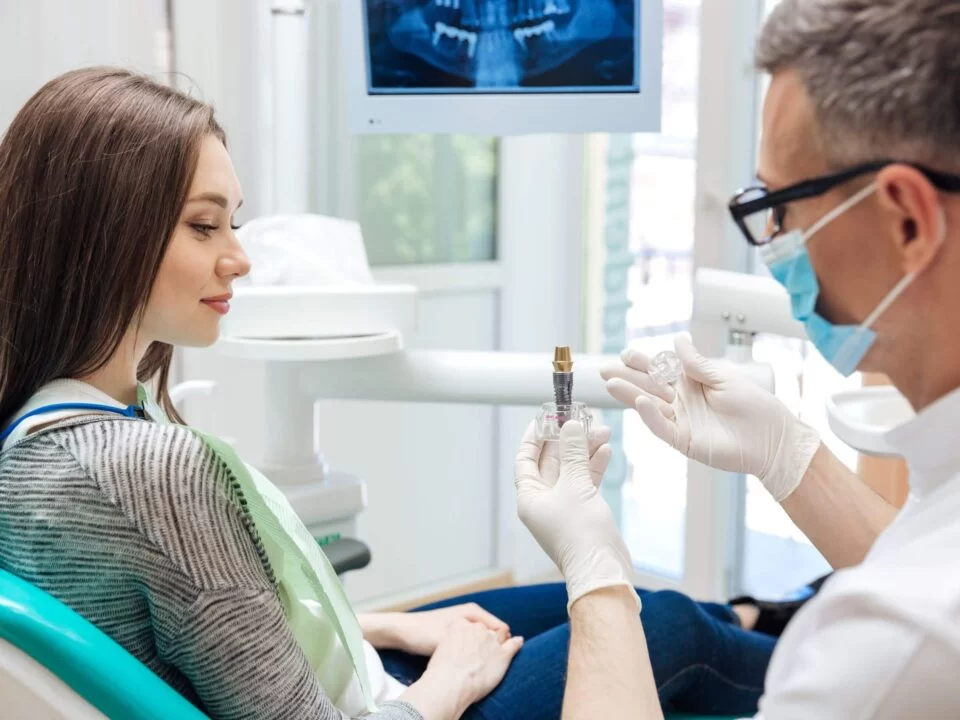
How to Care for Your Mouth After Dental Implant Surgery
1. Why Proper After-Care for Dental Implants Is Crucial
Getting dental implants is a significant investment in your oral health, but proper after-care is essential to ensure successful healing and long-term stability. Neglecting post-surgery care can lead to infections, implant failure, and prolonged discomfort.
2. What to Expect in the First 24 Hours
The first day after oral surgery is critical for setting the foundation for a smooth recovery. You may experience swelling, mild bleeding, and discomfort, which are all normal responses.
2.1 Managing Pain and Swelling
- Apply ice packs: Use a cold compress on the affected area for 10-15 minutes at a time to reduce swelling.
- Take prescribed pain relievers: Your dentist may recommend ibuprofen or acetaminophen to manage pain.
- Avoid excessive movement: Rest as much as possible to promote healing.
2.2 Controlling Bleeding
It's normal to see slight bleeding after surgery. Bite gently on a gauze pad for 30-45 minutes to help control it. If bleeding persists, replace the gauze and apply light pressure.
3. Eating and Drinking After Implant Surgery
Proper nutrition is key to a smooth recovery. Stick to soft, nutritious foods that don’t require excessive chewing.
3.1 Best Foods for Recovery
- Soft foods: Yogurt, mashed potatoes, scrambled eggs, smoothies, and soup.
- Protein-rich options: Blended beans, cottage cheese, and protein shakes.
- Hydration: Drink plenty of water, but avoid using straws, as suction can dislodge the healing clot.
3.2 Foods to Avoid
Stay away from hard, sticky, or spicy foods that can irritate the surgical site. Avoid alcohol and caffeine, which can slow the healing process.
4. Oral Hygiene Tips for Faster Healing
Maintaining a clean mouth is crucial to prevent infections and ensure implant success.
4.1 Brushing and Rinsing
- Use a soft-bristled toothbrush and be gentle around the surgical site.
- Rinse with warm salt water (avoid mouthwash with alcohol).
- Avoid direct brushing on the implant area for the first few days.
5. Long-Term Care for Dental Implants
Once your implant has healed, maintaining good oral hygiene is essential to its longevity.
5.1 Regular Dental Visits
Schedule check-ups every six months to ensure your implants remain in good condition.
5.2 Lifestyle Adjustments
Avoid smoking and limit sugary foods to prevent gum disease and implant failure.
6. Taking the Next Steps
Proper after-care is key to a smooth recovery and long-lasting dental implants. Investing in the right dental hygiene products can make all the difference. Explore our recommended post-implant care essentials today!







 Loretto Multi-Specialty Dental Center4.0 (111 review)
Loretto Multi-Specialty Dental Center4.0 (111 review) Sonrisas Dental Studio3.0 (101 review)
Sonrisas Dental Studio3.0 (101 review) Loma Linda University Center for Dentistry and Orthodontics4.0 (24 review)
Loma Linda University Center for Dentistry and Orthodontics4.0 (24 review) Community Health Center of Snohomish County - Everett-North Clinic4.0 (960 review)
Community Health Center of Snohomish County - Everett-North Clinic4.0 (960 review) Endodontic Specialists of Illinois4.0 (57 review)
Endodontic Specialists of Illinois4.0 (57 review) Open Door Family Medical Center- Sleepy Hollow4.0 (215 review)
Open Door Family Medical Center- Sleepy Hollow4.0 (215 review) The Importance of Oral Health Education During Pregnancy for a Healthy Pregnancy
The Importance of Oral Health Education During Pregnancy for a Healthy Pregnancy Best Tips for Brushing Your Teeth Properly for Healthy Gums: Essential Techniques for Oral Health
Best Tips for Brushing Your Teeth Properly for Healthy Gums: Essential Techniques for Oral Health Why Skipping Dental Checkups Can Lead to Bigger Oral Health Problems
Why Skipping Dental Checkups Can Lead to Bigger Oral Health Problems Advantages of Porcelain Dental Restorations
Advantages of Porcelain Dental Restorations How Can Diabetes Cause Tooth and Gum Problems? Preventing and Managing Oral Health Issues
How Can Diabetes Cause Tooth and Gum Problems? Preventing and Managing Oral Health Issues Healthy Habits for Promoting Good Oral Health and Hygiene: Tips for a Healthy Smile
Healthy Habits for Promoting Good Oral Health and Hygiene: Tips for a Healthy Smile